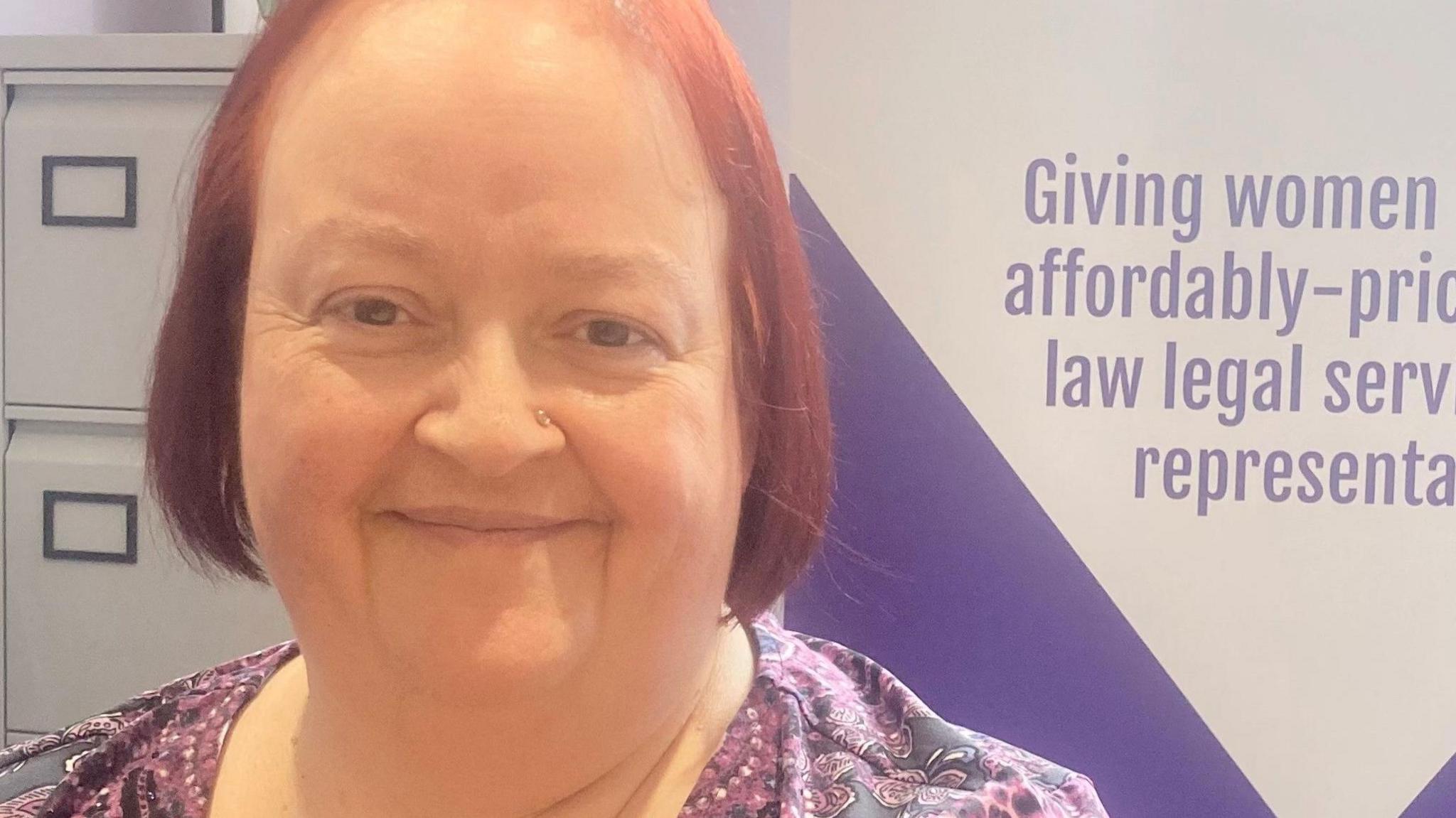Pregnancy clinic 'lifeline' for bereaved families
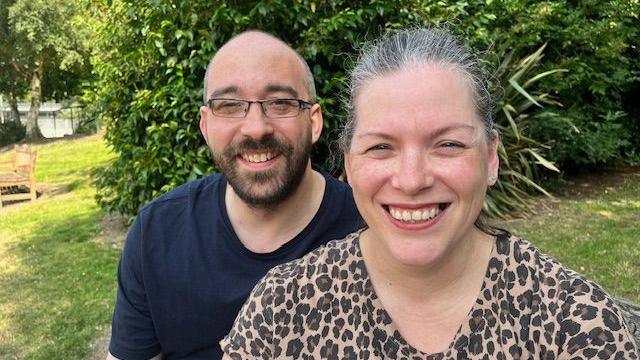
The Rainbow Clinic has provided "fantastic" support to Becky Anderson and her husband Matt
- Published
Families who have experienced the agony of losing a baby say they will be "forever grateful" for a new specialist pregnancy service in Hull.
The Rainbow Clinic, which opened in January at Hull Women and Children’s Hospital, supports pregnant women and partners who have previously lost a baby.
Among them is Becky Anderson, who gave birth 12 weeks ago following five miscarriages and an ectopic pregnancy that nearly led to her death.
“Just to know we had that extra level of support because of the trauma I had been through in the past made the pregnancy easier to cope with," she said.
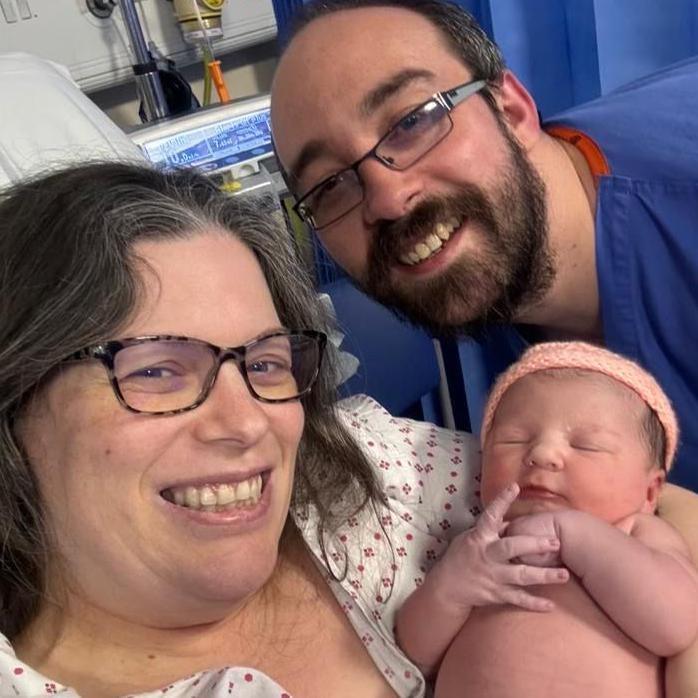
Mr and Mrs Anderson say they are "incredibly lucky" to have their daughter
"There were times where I thought, I don’t know if I can put my body through this any more, but we are just so incredibly lucky to have [the baby] here.”
Their daughter is one of 42 "rainbow" babies – the term used to describe a child born after a previous miscarriage or neonatal death – who have been brought into the world with the support of the centre.
Mrs Anderson's husband, Matt, said the service has been a "lifeline".
“No matter what we did, we couldn’t control what was happening to us," he said. "It led to me developing anxiety.
"I was trying to find some control in a situation where I felt out of control.
"The support the group has given Becky has been fantastic," he added. "They’ve been there at the times when I’ve not known what to say.”
‘Anxious time’
The clinic supports families who have experienced three or more consecutive miscarriages, a miscarriage between 14 and 24 weeks, a stillbirth, or the death of a baby within three months of birth.
Jess McWilliam lost her one-week old son Ted, who was born prematurely, late last year. She is now 27 weeks pregnant and receiving support from the clinic.
"The excitement of getting pregnant again was very quickly squashed by the 'what ifs'," she said. "It’s a really anxious time.
"It’s a unique club nobody wants to be a part of, but unfortunately we have all found ourselves in that situation and to be able to talk to other women and vent feelings that maybe you wouldn’t say to anyone else is invaluable.
"I don’t think I would have been able to be on this journey again without this support.”
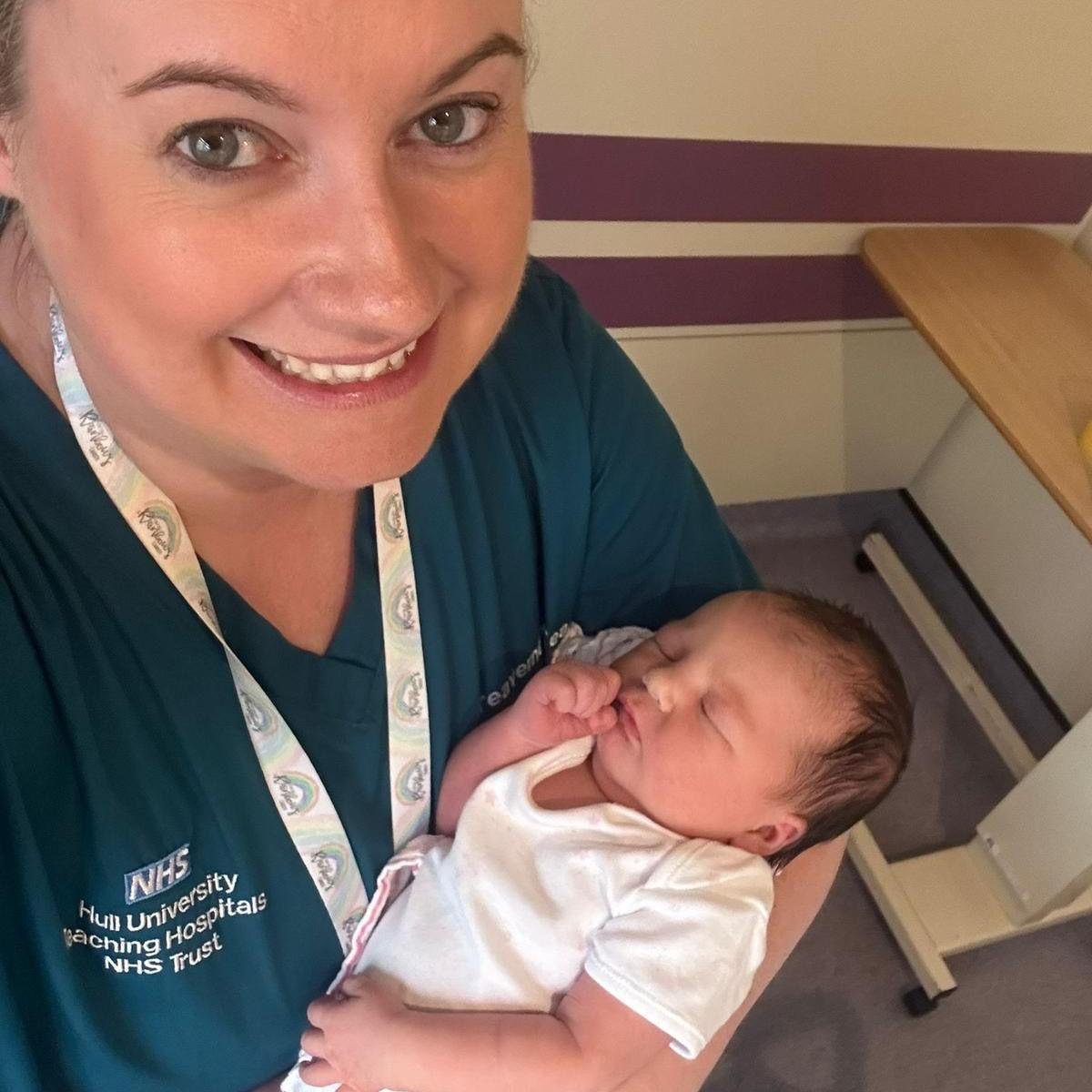
Sam Catanach, a support worker at the hospital, with the Anderson's baby
Sam Catanach, a maternity bereavement support worker, described the service as a "safe environment" where staff "understood" why people were upset.
"Even though these women might be pregnant again, people think it is an exciting and happy time for them, but they still want to remember the baby that they lost," she said.
"They are still very sad and even just coming back to the hospital can be triggering.”
Follow BBC East Yorkshire on Facebook, external, X (formerly Twitter), external and Instagram, external. Send your story ideas to eastyorkslincs.news@bbc.co.uk, external
Related topics
Related internet links
- Published24 May 2024
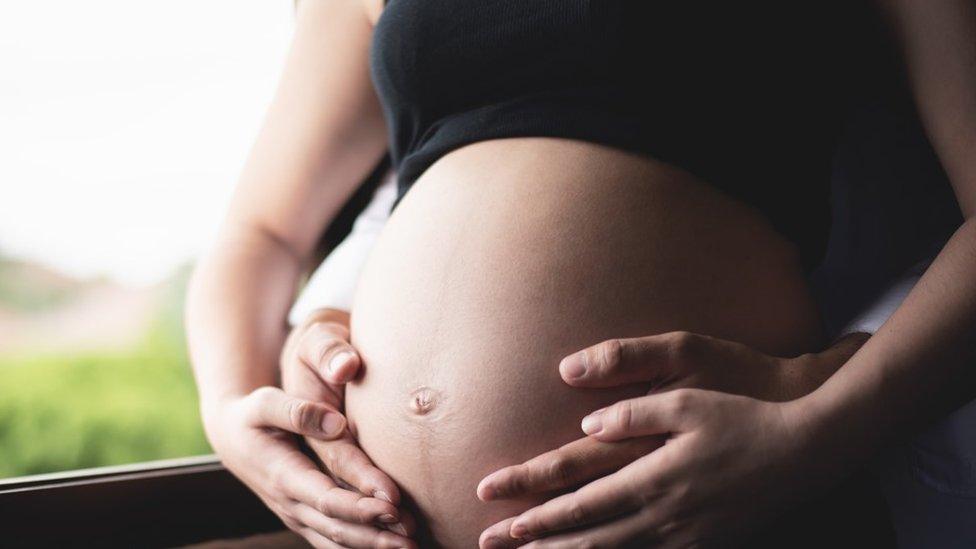
- Published16 July 2024
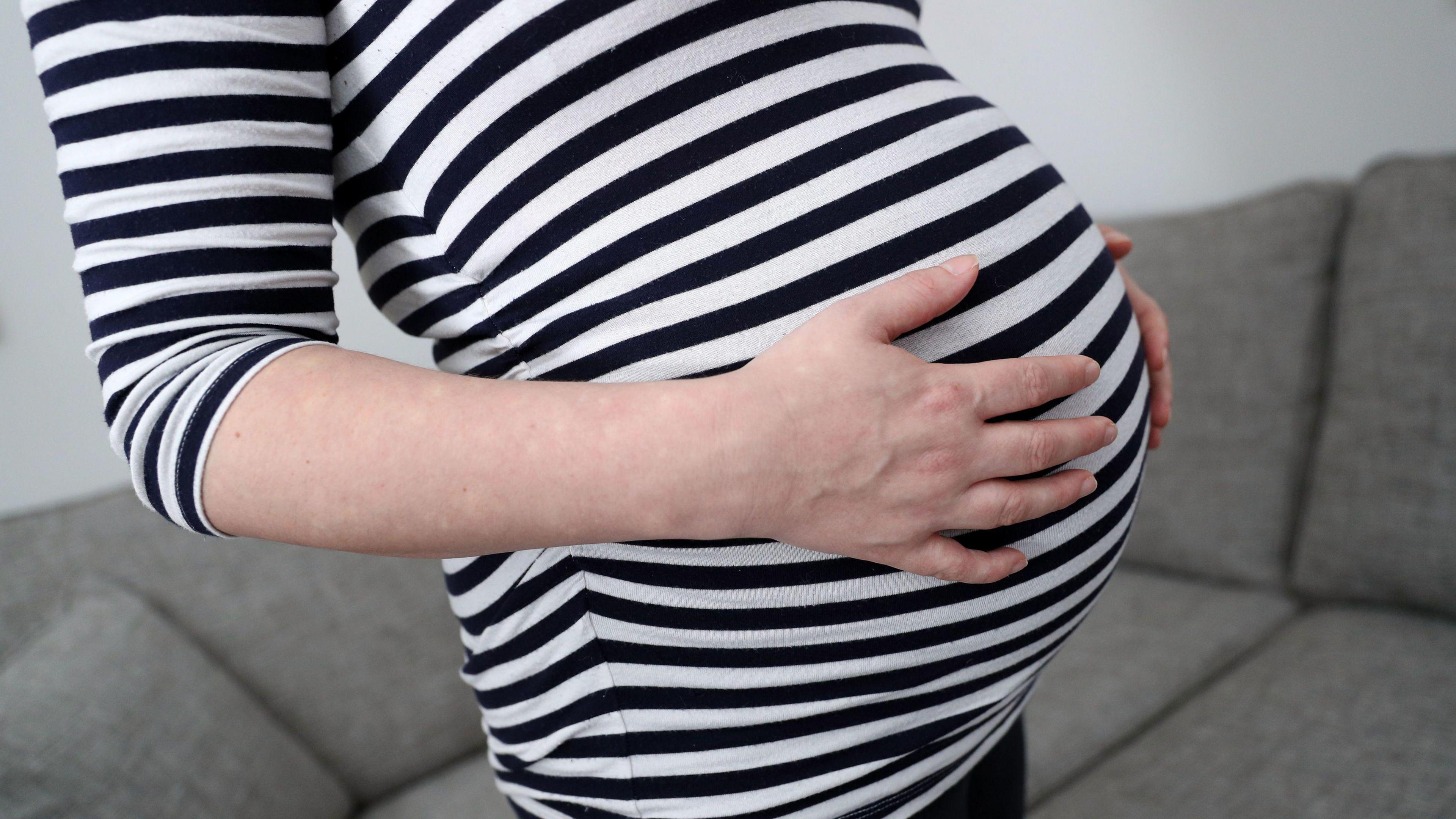
- Published15 June 2024
